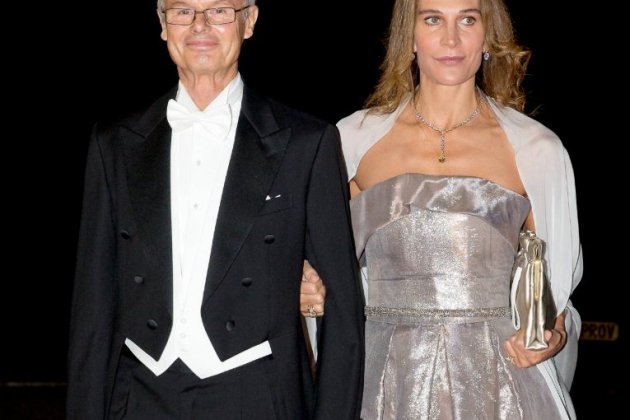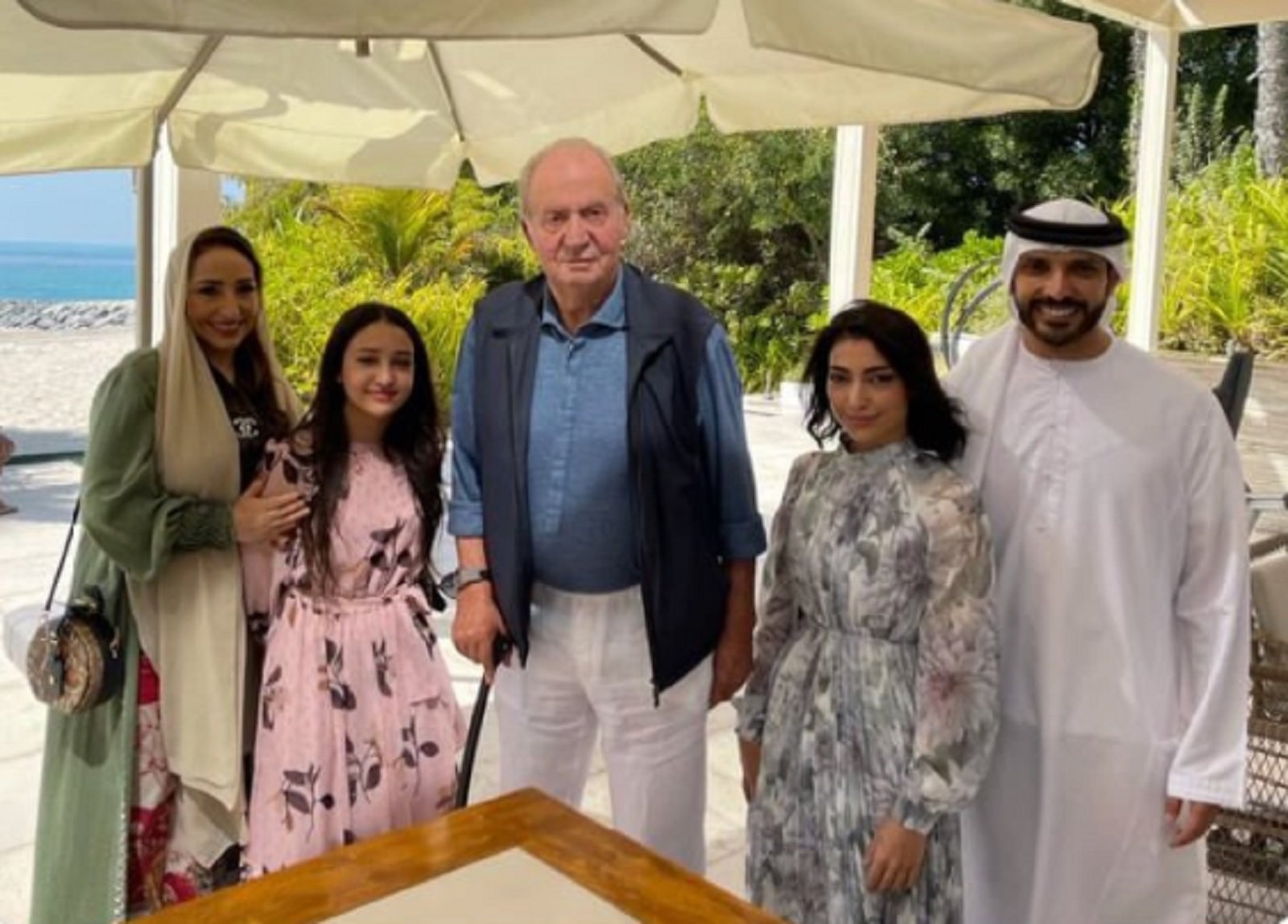The former Spanish king Juan Carlos I, immersed in corruption allegations, has confirmed reports that he has made a second payment of supposed tax debts to Spain's treasury. As his spokesperson and lawyer Javier Sánchez Junco has stated: "The king has paid 4,395,901.96 euros to the treasury" to repay a debt with the tax department via a voluntary declaration that has been made due to "the assumption of the Zagatka Foundation of certain expenses for travel and services made by His Majesty from which there could arise certain tax obligations that have been regularized."
But according to the Spanish newspaper El Mundo, "close sources confirm that the king has collected this money thanks to loans made to him by trusted friends." The king emeritus's closest circle has always been there for him at the critical moments; it should also be remembered that if he lives in Abu Dhabi, it is in part because of the good relations he maintains with its rulers. He has recently been spotted having breakfast with prince Sheikh Mohammed, vice president and prime minister of the UAE.
For now, the strategy of Juan Carlos's lawyer seems clear: to stay a jump ahead of the inquiries of Spanish public prosecutors by simply paying the treasury. The former head of state's advisers are studying the limits of article 305 of the Penal Code, which provides for voluntary tax regularization as a means of forestalling the opening of criminal proceedings, if carried out before any tax investigation is notified. Article 305 states that a taxpayer's situation "will be considered regularized when full recognition and payment of their tax debt has been made before the tax administration has notified them of the start of verification or investigation actions aimed at determining the tax debts subject to regularization".
First tax regularization
The abdicated Juan Carlos I, who fled to the United Arab Emirates in August 2020, had already made a payment of 678,393 euros to the tax authorities on December 9th last year, to cover an unpaid tax debt from 2016-2018, when he had already stepped down from his role as king and had therefore lost the inviolability he had possessed before Spanish law. With this first payment, the king emeritus acknowledged a tax fraud but, by regularizing the situation before he was notified of the opening of an investigation, was attempting to evade any penalty for the tax offence. Now he has does the same thing again, and has already paid a total of more than 5 million euros to the administration. The amount defrauded from the Spanish treasury which Juan Carlos I has admitted is thus much higher than the amount regularized last December, and way above the level of 120,000 euros in a year above which tax fraud is classified as tax crime.
The first payment related to the use by the former king and his entourage, including his grandchildren Froilán and Victoria Federica, of financially-opaque credit cards - linked to accounts of which he was not the holder. The money is believed to have come from the Mexican businessman Allen Sanginés-Krause, who allegedly made it available to Juan Carlos I, but it was not declared in Spain. The Mexican businessman deposited money in the account which was then used, by direct transfers or credit card payments, to pay for flights, hotels, restaurants and other private expenses of the monarch and his family.
A foundation and a cousin
The entity connected with this second payment, the Zagatka Foundation, involves several names and institutions with links to the king emeritus's affairs. The largest shareholder of the Spanish construction company OHL, Juan Miguel Villar Mir, was named as a marquess in 2011 by royal decree of the then-king Juan Carlos. An aristocratic appointment that took place just after the Zagatka Foundation, of which both Juan Carlos and his son Felipe were then beneficiaries, received the sum of 4.2 million euros from a Mexican company belonging to OHL. Villar Mar was awarded his title for an "long and outstanding career in the service of Spain and the crown", according to the Spanish state gazette: a flag of patriotism which, allegedly, is draped over corrupt payments, which are also believed linked to the Spanish construction contracts for the Saudi Arabian high speed train.
Listed as the first beneficiary of the Zagatka Foundation is a distant cousin of Juan Carlos, Alvaro de Orleans-Borbón who himself acknowledged to Swiss prosecutors in 2018 that he had deposited a payment of 4.2 million euros into the Foundation. This money came from Huarte, a Mexican subsidiary of Villar Mir's construction business - in fact, the initials of his company, OHL, stand for Obrascón, Huarte and Lain. The head of the building empire denied the payment.
De Orleans-Borbón claimed that he did not know the origin of the 4.2 million euros income, which was deposited as a cheque. He later justified it in relation to his professional work in a macro-tourist project on the Riviera Maya called Mayakoba.

Alvaro de Orleans-Borbón, a beneficiary of the Zagatka Foundation, and his wife.
According to Swiss prosecutors, this money was deposited in the Crédit Suisse bank in 2009, providing the Zagatka Foundation with funds which were used to cover travel expenses of the monarch. The foundation was also used to receive commissions from the sale of Banco Zaragozano to Barclays Bank in 2003.
Notably, another of the beneficiaries of this foundation was current Spanish king Felipe VI, who announced in March 2020 that he was renouncing his rights to it - while also stating that he hadn't known about his status as a benificiary of it. At the same time, the current Spanish head of state rejected that he was connected with a second entity, the Lucum Foundation, in which he also figured as a beneficiary. Through leaked recordings of conversations recorded with Juan Carlos's ex-lover, Corinna Larssen, it was discovered that the distant cousin Álvaro was "the straw man". The Zagatka Foundation was established in Liechtenstein on October 1st, 2003.
Statement by the lawyer of Juan Carlos I.

